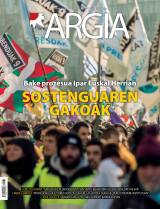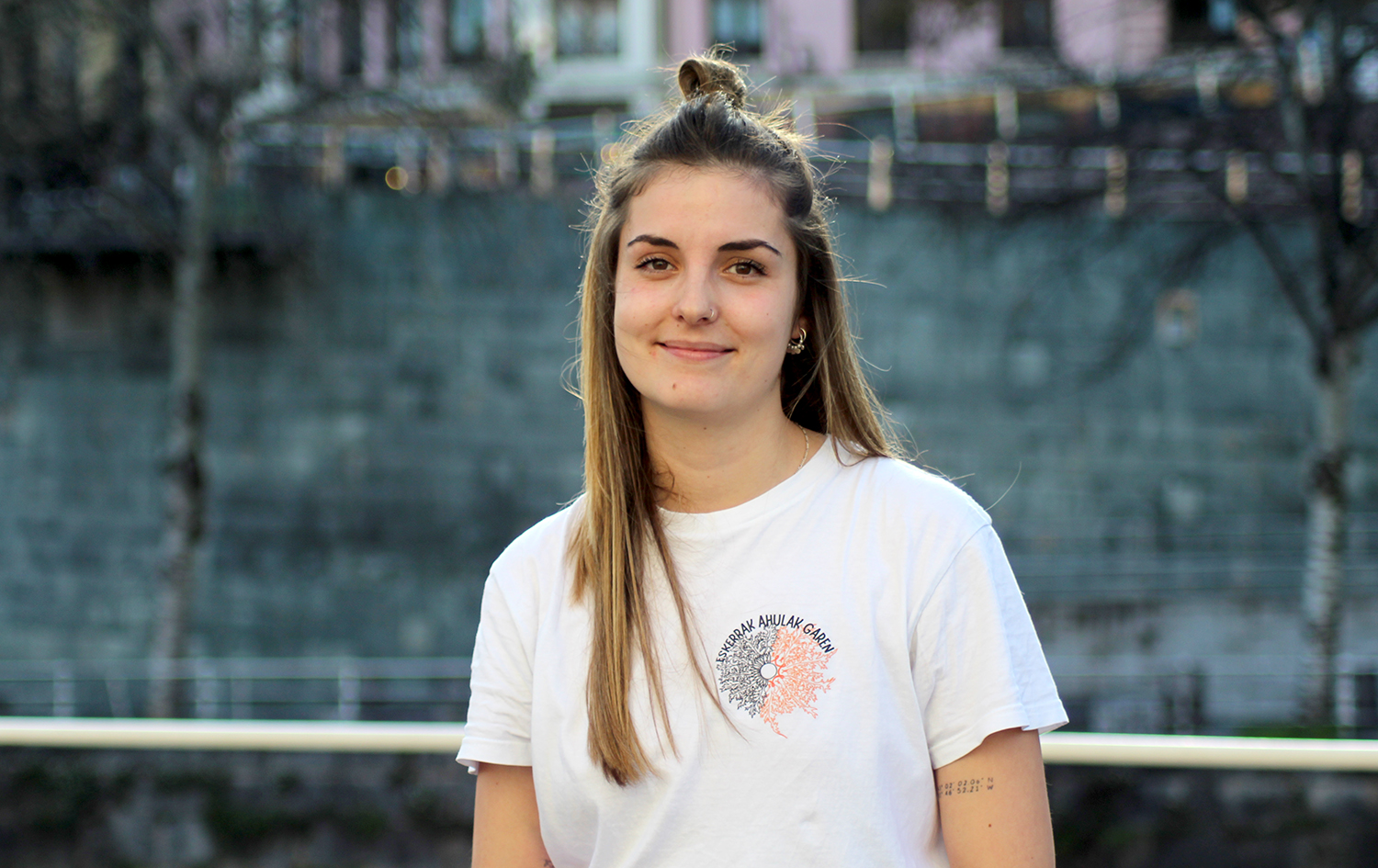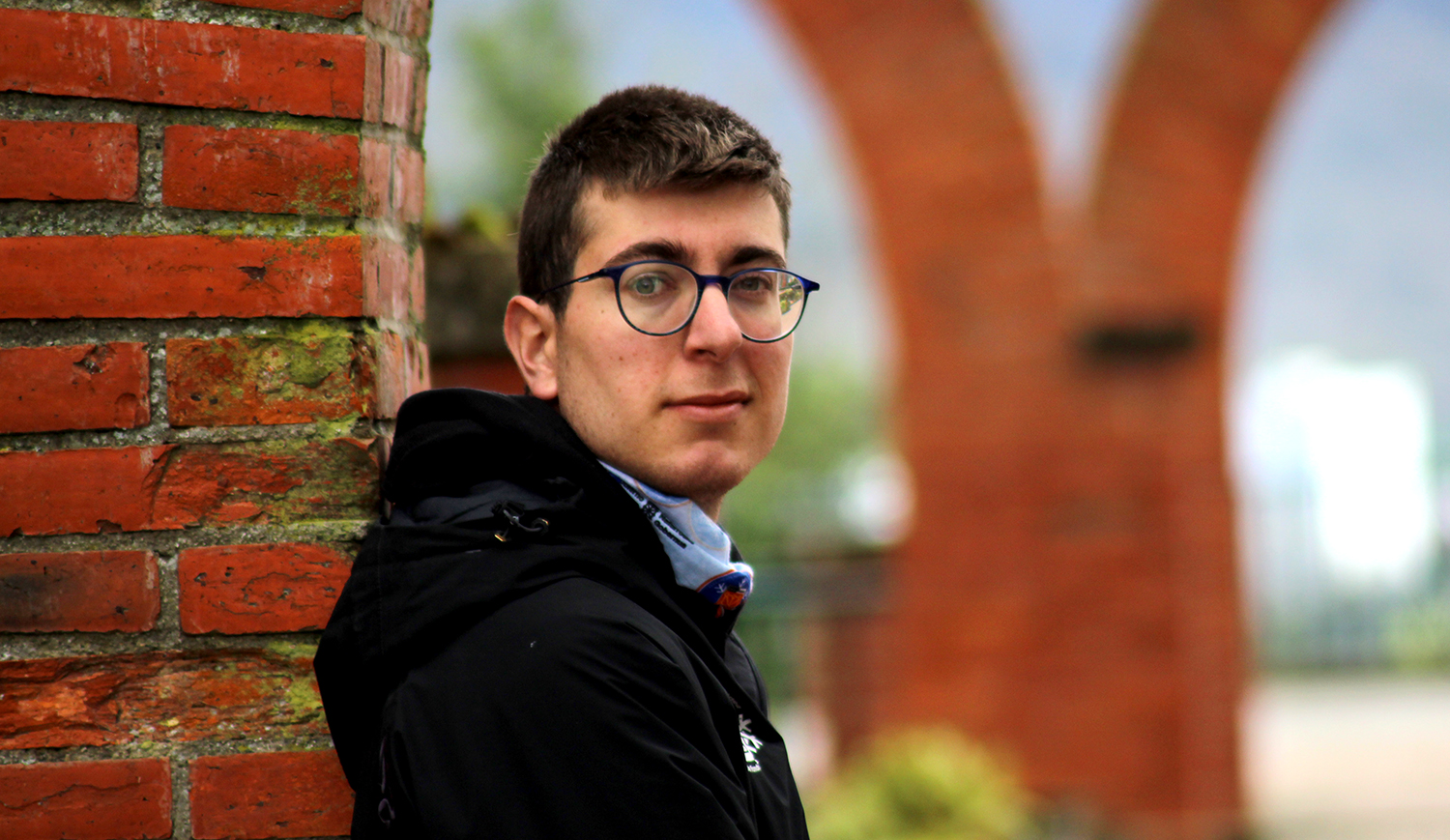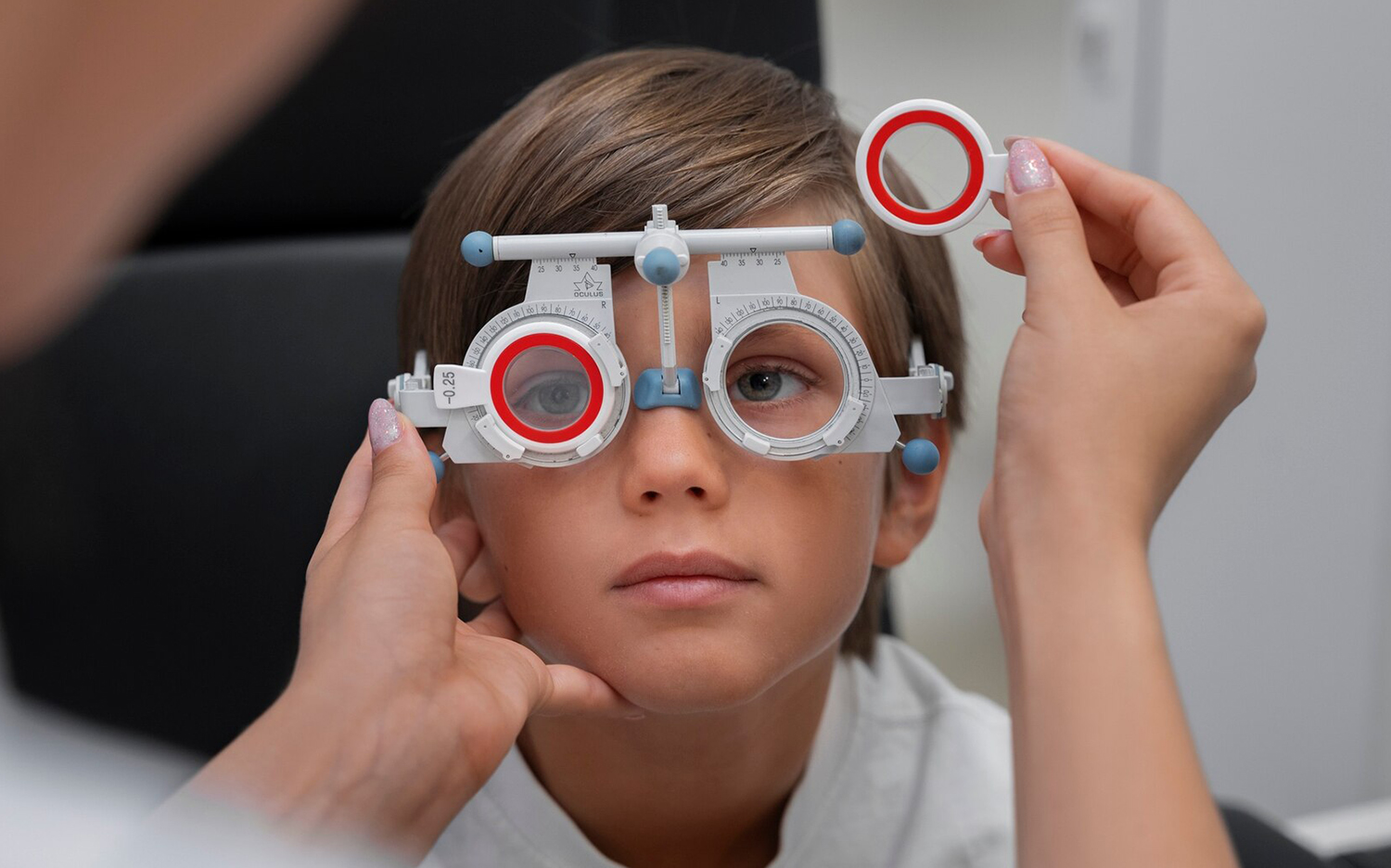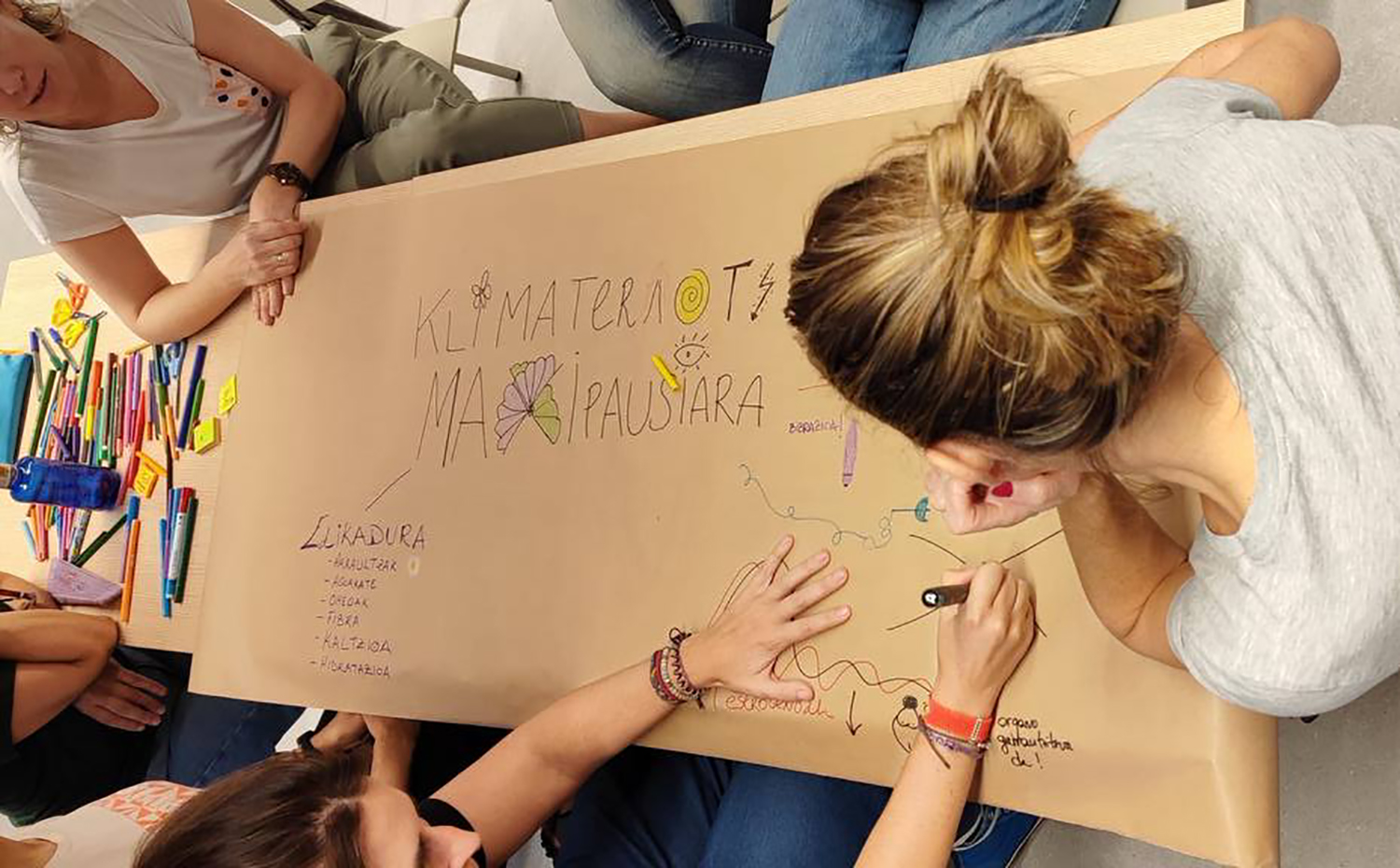The power of knowledge of evil
- Alzheimer's is a degenerative brain disease that has no solution. Everyone who suffers needs a person who takes care of you for 24 hours. Begoña Rodríguez is one of the people next to the patient.
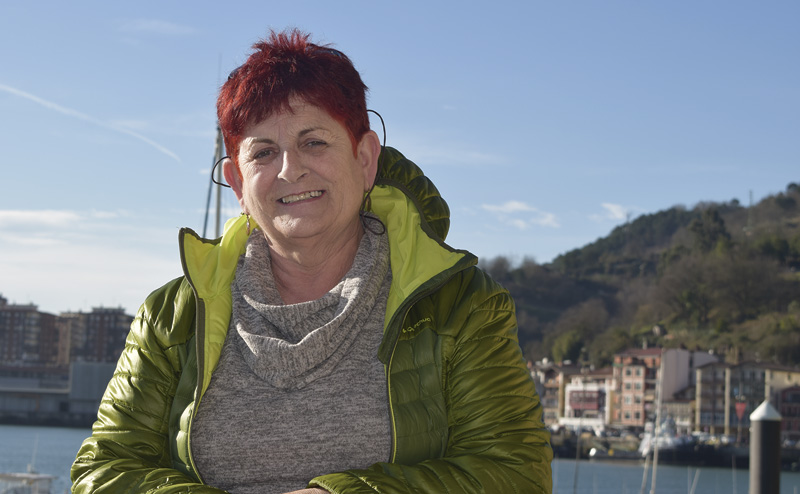
Almost ten years ago, her husband, Begoña Rodríguez, was diagnosed with Alzheimer's. At first he got a terrible blow; he couldn't believe it, he couldn't accept it. “And how do you deal with all this?” he wondered. “When you realize the situation is insurmountable, you decide to ask for help.” Half a year after her husband's illness, she went to the AFAGI association, dedicated to defending the quality of life of patients and caregivers.
“I had a wonderful welcome. From day one I felt that they would help me and I was very reassured. I approached confidently and had the opportunity to speak in the first person. Our situation was already rather harsh, but I was ready to receive help and has helped me to overcome many things. You will suffer, but you strengthen yourself to cope with everything,” he says. She tells us that her husband has been in hospital for the past three years and that, despite the fact that “responsibility has decreased”, she continues to thank her for her help: “The work has reduced me, I don’t worry so much, but the emotions and feelings are here and I need it.”
Rodríguez works with the AFAGI team in Gipuzkoa, based in Donostia-San Sebastián. In this regard, he stressed that it is possible to approach anyone and that the service is free. Together with psychologists and social workers, they learn and work the details of the disease and offer tools for the care of oneself or the sick person: “They do forget things, but if it was just that... Many things are created in daily life and tools are needed to deal with and respond to everything. I have been learning and studying and the knowledge has given me a lot of strength. It has made me very strong.”
30 years ago, Alzheimer's was a familial illness. It was a disease, unknown, that adapts to age. Today, it is increasingly being detected. In Hego Euskal Herria there are some 47,000 cases and in 15 years the figure is expected to double.
Key communication
Loneliness, restlessness, anger, depression, shame, helplessness and guilt are the collateral damage to those living with the disease in its immediate environment. As mentioned by Rodríguez, it is necessary to take care of it: to gather information on the subject, to speak, to dedicate time to oneself, to take care of health, to ask for help, to set limits, to distribute weight... He stressed that society has the stigmatized disease: “As the situation stands, socializing is very difficult and is the most necessary. There are basic things that we should all know. People with disease can have problems, but if you want to do something for them it’s not so much work.”
To do this, it is essential to work on communication between them. Rodríguez has given us some keys: to use simple language and a warm voice, not treat it like a fool or a child, leave time to respond, avoid noises, not know how to resist, not know how to reason, look in the eyes, repeat over and over again, talk with gestures and help only as required. Patients say “let me do it; I will do it more slowly, but I will do it”, or “mania, you always run and run; speak more slowly”. It is essential that they maintain their autonomy to the fullest.
Currently, Rodríguez is Vice President of AFAGI. He is giving lectures, informing, talking to his family members and participating in new projects. “It’s been such the help I’ve received, that I’ve sworn that every time I have time I’ll also help. It's been hard for me to deal with a lot of things, but that's why I'm happy now. I’m willing to do everything.”
Many Basque feminists have been disappointed to learn that writer Chimamanda Ngozi Adichie has externalized pregnancy, meaning that a surrogate has fertilized her baby for money.Adichie is the author of the essay We should all be feminists, among others. They have ignored the... [+]
Indartsua, irribarretsua eta oso langilea. Helburu pila bat ditu esku artean, eta ideia bat okurritzen zaionean buru-belarri aritzen da horretan. Horiek dira Ainhoa Jungitu (Urduña, Bizkaia, 1998) deskribatzen duten zenbait ezaugarri. 2023an esklerosi anizkoitza... [+]
Orain arte desgaituak ez diren pertsonekin lehiatu da Uharteko Ipar Eski Taldeko Eneko Leyun eskiatzailea (Iruñea, 1998). 2024-2025 denboraldian, lehenengo aldiz parte hartu du Adimen Urritasuna duten Pertsonentzako Iraupeneko Eskiko Espainiako Txapelketan. Urrezko... [+]
Pertsona lodiek lodiak izateagatik bizi izan duten eta bizi duten indarkeriaren inguruan teorizatzeko espazio bat sortzea du helburu ‘Nadie hablará de nosotras’ podcastak. Cristina de Tena (Madril, 1990) eta Lara Gil (Fuenlabrada, Espainia, 1988) aktibista... [+]
Gazteagotan baino lotsa handiagoa dauka, baina horrek ez dio saltsa askotan ibiltzeko gogoa kentzen Leire Zabalza Santestebani (Iruñea, 1990). Beste gauza askoren artean, Motxila 21 musika taldeko kidea da. Nabarmendu du musika gauza asko aldarrikatzeko bide izan... [+]
Miopia gero eta gehiago eta gero eta lehenago ari da garatzen, eta horren arriskua da dioptriak gehitzen joatea eta helduaroan begiari lotutako hainbat gaitz izateko aukerak dezente handitzea. “Eguzki-argia jasotzea inportantea da, eta denbora asko ez igarotzea oso gertu... [+]
Istorioetan murgildu eta munduak eraikitzea gustuko du Iosune de Goñi García argazkilari, idazle eta itzultzaileak (Burlata, Nafarroa, 1993). Zaurietatik, gorputzetik eta minetik sortzen du askotan. Desgaitua eta gaixo kronikoa da, eta artea erabiltzen du... [+]
This wedge that the announcement on the radio Euskadi to replace the bathtub with a shower encourages the commencement of the works in the bathroom of the house. A simple work, a small investiture and a great change are announced. There has been a shift in toilet trends and a... [+]







